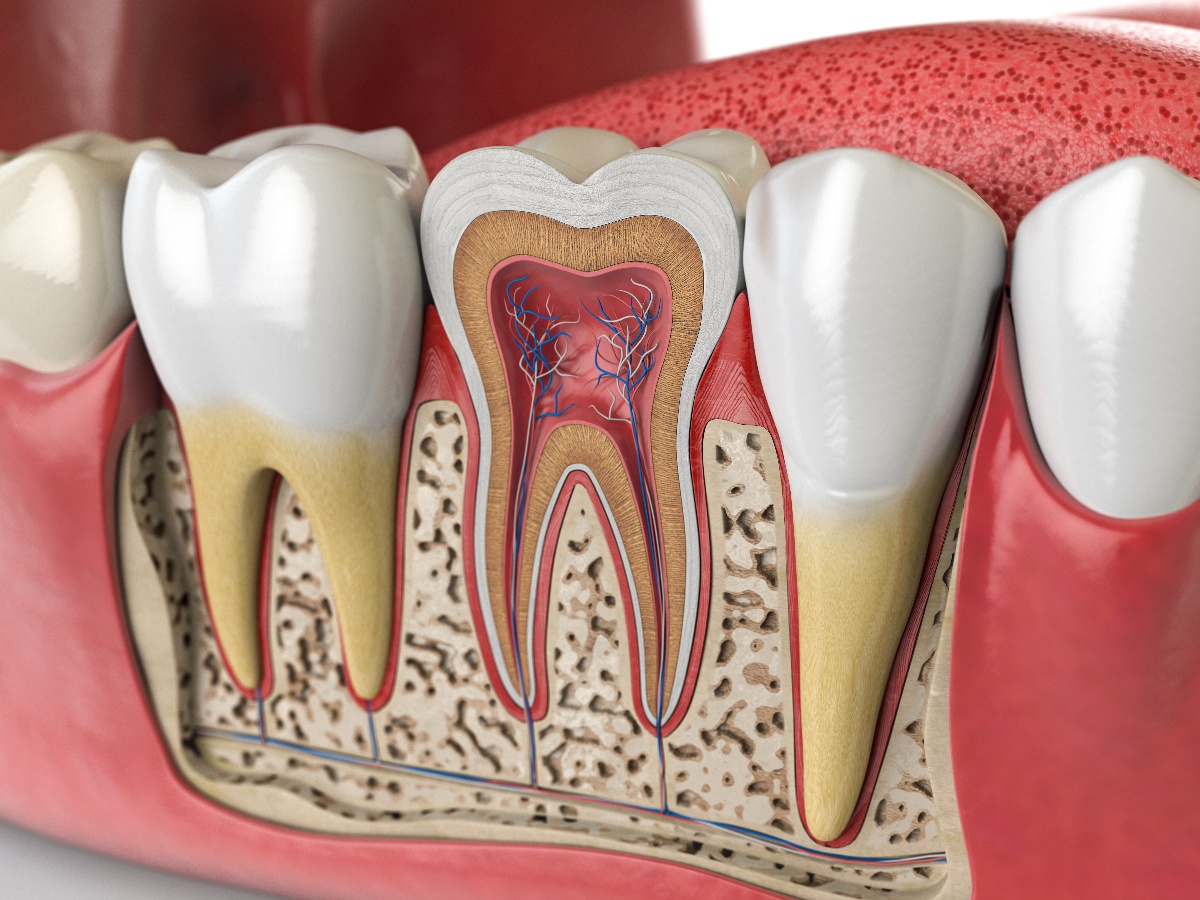Jaw pain is a common condition that is often difficult to diagnose and treat. Symptoms can come on suddenly and resolve without treatment or be chronic, often requiring treatment from multiple professionals from several healthcare fields. Because dentists receive extensive training in the anatomy and diseases of the jaw, seeing your dentist first is usually recommended.
How Your Jaws Work
The size and position of the bones of your jaws affect your appearance, speech, and chewing. Attached to and supported by the jaw bones are several types of soft tissue, including muscles, lips, gums, tongue, nerves, and blood vessels. Additionally, teeth that fit together when you close your mouth are embedded in your jaw. Half of your teeth (in the lower jaw) move during various activities such as chewing and talking.
Each day you use your jaws hundreds of times for everything from biting an apple to breathing. For all its intricate movements, the jaws depend on many body parts functioning properly, including:
- The temporomandibular joints (TMJ). These complex joints lie in front of your ears and connect your lower jaw with your skull. The TMJ is composed of muscles, bones, ligaments, and nerves.
- The mandible. Your mandible, or lower jaw, is the only moveable bone in your skull. The mandible’s uppermost bony portion forms part of the TMJ. Besides holding your lower teeth, major chewing muscles attach to various parts of the mandible.
- The upper jaw. Your upper jaw, or maxilla, is a major bone supporting the middle of your face. While it is composed of a bone on both sides of your face, they fuse together to form a single bone that holds your upper teeth and forms the roof of your mouth. It has many vital functions but does not move.
- The teeth. How your teeth fit together is critical to how comfortably your jaws function. Additionally, the nerves and blood vessels connecting your teeth and jaws can factor in jaw pain.
Five Common Causes of Jaw Pain
Although there are many possible causes of jaw pain, dentists typically diagnose a few of these most frequently. Here are five common causes of jaw pain:
1. TMJ Dysfunction
TMJ dysfunction is the most common cause of jaw pain, affecting millions of people yearly. When you have a problem with your TMJ, you can have mild to severe jaw pain. Pain is usually felt in the area in front of your ear, but it can also radiate to other areas such as the temple, neck, or shoulders. Other symptoms include jaw stiffness, headache, clicking or popping noises, and jaw locking open or closed. Pain may feel more intense after eating, in the morning, or during times of stress. Studies reveal that about 75% of the population has at least one sign or symptom of TMJ dysfunction.
2. Abscessed Tooth
Tooth decay, trauma, periodontal disease, and cracks can cause infection or inflammation of the tooth’s pulp. The dental pulp is the soft tissue inside your tooth containing blood vessels and nerves. Bacterial contamination can lead to pulp death and pus build-up, known as an abscess. Although an abscessed tooth is a localized condition, pain can be referred to another tooth, your ear, the opposing jaw, frontal or temporal areas of the head, and neck. While an abscessed tooth can hurt almost any area of your jaw or head, it will always be on the same side of your head as the infected tooth.
3. Sinus Infection
The roots of your upper molar teeth sit near the sinus cavities, sometimes protruding into the maxillary sinuses. Infected teeth account for 10-12% of sinusitis due to this relationship. More commonly, people see their dentist believing they have a toothache when the cause is inflammation or infection of their maxillary sinus. However, your dentist can conduct some simple diagnostic tests to rule out an infected tooth and confirm the cause of sinusitis.
4. Bruxism
Bruxism, or teeth grinding, can occur while awake or during sleep. Both classifications, awake and sleep, can result in jaw pain and stiffness. However, those with sleep bruxism are more likely to experience these symptoms. This is due to the unconscious forces placed on jaw muscles and the temporomandibular joints. When your jaw is at rest, there is a gap between your upper and lower teeth, with them contacting each other only a few minutes each day. However, if you grind your teeth while sleeping, your teeth can touch for hours. Your jaws and TMJs are not designed to withstand that excessive force without being damaged.
5. Wisdom Teeth
Wisdom teeth, or third molars, are the last four teeth to erupt. They can erupt without causing pain or other symptoms if there is ample room. However, in many cases, there is too little room behind the second molars for the wisdom teeth to completely enter your mouth. This partial eruption leaves a flap of gum tissue that can trap food particles and bacteria between the gum and tooth. If this debris is not flushed out with water, an infection known as pericoronitis can develop. Pain from pericoronitis is typically in the jaw around the erupting tooth. Still, it can radiate to all areas of the jaw, the ear, and the neck. This condition can interfere with breathing and become a life-threatening emergency.
Treatments for Jaw Pain
Successful treatment of jaw pain depends on an accurate diagnosis. Call for medical assistance immediately if you have jaw pain accompanied by chest pain, difficulty breathing, sweating, and a faint feeling. Although not as prevalent as other causes, a heart attack can cause jaw pain.
Most cases of jaw pain require no treatment or can be alleviated with remedies such as:
- Ice or hot packs
- Over-the-counter pain medications
- Stress management
- Jaw massage
- Temporary soft diet
- Avoiding wide yawning
- Avoiding habits such as fingernail biting or ice chewing
Depending on the cause of your jaw pain, treatment could involve one or more of the following:
- Custom-made night guard for bruxism.
- Wisdom tooth removal for pericoronitis.
- Root canal therapy for an abscessed tooth.
- Medical consultation for sinusitis.
TMJ dysfunction is the most common cause and can be the most challenging jaw pain to treat. Some cases can be mild, temporary, and require no treatment. However, chronic TMJ or cases of severe pain can require a team of healthcare professionals such as a dentist, physical therapist, chiropractor, physician, and massage therapist. Some treatments include:
- Mouth guard.
- Occlusal, or bite, adjustment.
- Braces.
- Restorative dentistry.
- Counseling.
- Trigger point therapy.
- Surgery.
Schedule an Appointment
For a comprehensive oral examination and jaw pain diagnosis, contact us online or call us to see one of our oral health care professionals.





